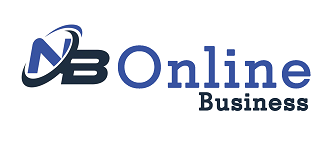Running a small business is like juggling many balls at once. Each ball represents a crucial part of the business, and one wrong move can cause them to fall. One of the most important aspects is managing finances. Hiring a qualified professional, like a North Dallas accountant, can make a world of difference. A Certified Public Accountant (CPA) offers expertise and guidance that help small businesses thrive. They bring clarity to complex financial matters, ensuring nothing is overlooked. This support allows business owners to focus on what they do best—growing their business. A CPA helps with tax optimization, planning, and compliance. They also assist in making informed financial decisions, which are vital for long-term success. Without this professional insight, businesses may struggle with financial management, risking costly mistakes. For these reasons, engaging a CPA is not just beneficial—it is essential for small business survival and growth.
1. Accurate Financial Analysis
CPAs provide accurate and detailed financial analysis. They ensure that all financial statements are correct. This helps businesses understand their true financial position. With accurate data, businesses can make informed decisions. Decisions based on incorrect data can lead to financial losses. A CPA helps prevent this by ensuring accuracy in all financial dealings.
2. Tax Compliance and Optimization
Taxes can be complicated. Small businesses must comply with tax laws to avoid penalties. CPAs help navigate these complex tax codes. They ensure compliance with all legal requirements. Furthermore, they optimize tax liabilities. CPAs find legitimate ways to reduce taxes, ensuring businesses keep more of their hard-earned money. For more detailed information on tax compliance, visit the Internal Revenue Service website.
3. Strategic Financial Planning
Long-term success requires strategic planning. CPAs help set financial goals and create a roadmap to achieve them. They analyze financial data to forecast future trends. This helps businesses allocate resources effectively. Strategic planning with a CPA ensures that a business is always on the right path. It provides peace of mind, knowing that the financial future is secure.

4. Risk Management
Every business faces financial risks. CPAs identify potential risks and put measures in place to mitigate them. They assess the financial stability of a business and provide solutions to safeguard assets. By understanding the risks involved, businesses can take proactive steps to protect themselves. This leads to a more stable and secure business environment.
5. Time and Cost Efficiency
Managing finances takes time away from core business activities. By hiring a CPA, business owners can focus on growth and customer satisfaction. CPAs handle all financial matters efficiently. This not only saves time but also reduces costs. Mistakes in financial management can be costly. CPAs prevent these errors, ensuring financial efficiency.
Comparative Analysis: In-house Accountant vs. CPA
| Criteria | In-house Accountant | Certified Public Accountant (CPA) |
|---|---|---|
| Cost | Fixed salary | Flexible, based on services required |
| Expertise | Basic accounting | Tax, compliance, strategic planning |
| Flexibility | Limited to working hours | Available as needed |
| Risk Management | Limited capability | Comprehensive risk assessment |
| Scalability | May require additional hires | Scalable with business growth |
The choice between an in-house accountant and a CPA can impact a business’s financial health. CPAs offer a versatile and expert approach to financial management. They provide services tailored to business needs, helping achieve financial goals.
The advantages of hiring a CPA are clear. They bring expertise, save time, and reduce costs. They ensure compliance with tax laws and optimize financial resources. This makes them a valuable partner for any small business.







